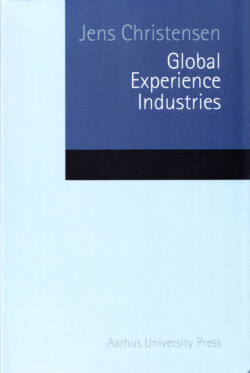Читать книгу Global Experience Industries - Jens Christensen - Страница 12
На сайте Литреса книга снята с продажи.
3. Tourism Tourism
ОглавлениеTourism is a gigantic field of business and social activity. Its global, regional, national and local importance is large and growing, although it differs in size and nature from nation to nation. Tourism may be defined as travel for predominantly recreational or leisure purposes and the industries that provide the services to fulfil these targets.1 Tourists are people who travel to and stay in places outside their usual environment for not more than one year for leisure, business and other purposes, excluding continuous work. In tourism is included international outbound and inbound tourism and domestic tourism. Domestic and inbound tourism combined may be called internal tourism. National tourism is a combination of domestic and outbound tourism. International tourism consists of inbound and outbound trans-border tourism.
Tourism has impacts on societies in many ways. On the supply-side, you have those industries that directly supply tourists with goods and services and primarily are dependent on servicing tourism, such as travel, accommodation, and attractions. This tourism industry is backed by several sub-suppliers that provide means of transportation, information and communication as well as food and beverages, clothing, housing and the infrastructure needed to make traveling feasible. Business services and in particular governmental authorities are vital parts of tourism, too. These authorities often provide infrastructure and educations, are responsible for protection of the cultural heritage, and in general produce and operate the legal framework concerning nature, urban environments, travel and trade. Like rings in water, the tourist industry and its sup-suppliers and general preconditions spread into most parts of society. Furthermore, governments support national and local tourism for economic reasons, because tourism generates income to many companies and people as well as export revenues. These broader dimensions of related industries make up the so-called multiplying effects of tourism on the general economy. Including the proper tourism industry, they form the wider tourism economy. At supra national level, the World Travel and Tourist Council (WTTC) represent the interests of the tourist industry while the United Nations’ World Tourism Organization (UNWTO) focuses on the preservation and diversity of cultural and environmental values around the world.
On the demand side, globalization and the revolutionary developments of transportation and communication have made it easy to travel almost anywhere you want to go, and millions of people have the time, money, education, health and inclination to do so, particularly in developed countries. When traveling, you have to meet the same demands as at home, but in addition tourists want an extra dimension by seeking out new places and experiences, too. During a vacation you eat, drink, sleep, play, shop, travel, phone, have sex, work, jog, are entertained, etc. All these parts of a vacation experience constitute the basis of a comprehensive tourism industry. The tourism industry is trying to attract people and having done so, they aim at meeting their demands. Because all national governments and tourism industries want people to spend their leisure time and money in precisely their country, everybody is competing even harder to attract tourists who nowadays have the opportunity to go virtually wherever they want to.
Tourism is an integrated part of global and national business and market developments. In addition, growing wealth and easy access to transportation and information make people travel more often than they used to do. This is not merely an escape from the daily round. Tourists travel to add new experiences to their lives. Traveling has become part of modern lifestyles, which requires the tourism industry to customize their products to demanding and knowledgeable tourists.2
To tourists, traveling is one continuous experience from start to end. No single company or branch supplies all the activities of the value chain of tourists. Therefore, the tourist industry is divided into several specialized industries, such as tour operators, travel agencies, airlines, hotels, restaurants, and attractions. Many related industries provide food, technology and other goods needed to run a tourist business, including a reliable infrastructure and other general preconditions to make life easy for tourists and industry.
In this context, we shall concentrate on the tourism industry. The secondary and wider economic results of tourism, called the ‘tourist economy’ of tourism, will be included only to a minor degree. The line between the primary and secondary economic dimension of tourism is not easily drawn. What is mostly dependent on tourism, whether supplying end-users or other businesses, will be included in the tourism industry.
To begin with, the historic and current size and growth of world tourism will be outlined.
